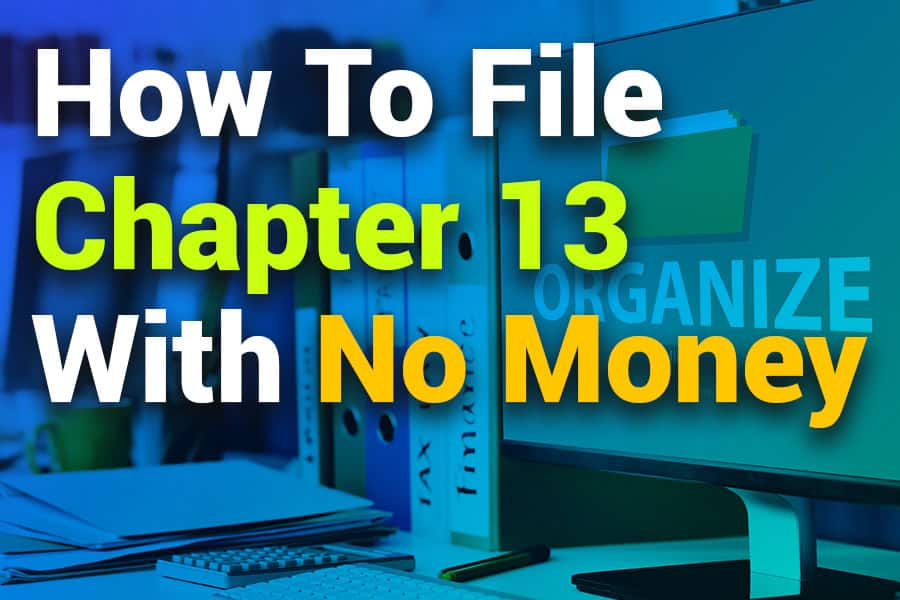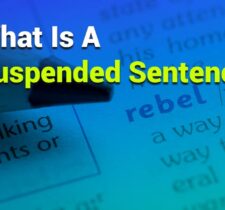Filing Chapter 13 bankruptcy can provide a structured repayment plan for those struggling with debt, allowing individuals to retain valuable assets like their home and car. However, the process does come with upfront fees that can be daunting for those already in financial distress. This guide will address how to file Chapter 13 with no money, providing insights on legal aid, payment strategies, and low-cost options. With a focus on affordability, we’ll walk you through ways to navigate Chapter 13 when resources are limited, ensuring you have the knowledge needed to begin this debt relief journey without excessive upfront costs.
Chapter 13 Bankruptcy and Its Benefits
Defining Chapter 13 Bankruptcy
Chapter 13 bankruptcy, known as the “wage earner’s plan,” is a legal avenue designed to help individuals with stable incomes manage overwhelming debt. This option allows you to create a structured plan to repay debts over three to five years while avoiding the liquidation of assets typically associated with Chapter 7. For those facing potential foreclosure or car repossession, Chapter 13 provides a way to retain these assets while working toward financial stability.
Benefits of Chapter 13 Bankruptcy
Chapter 13 offers significant advantages for eligible individuals. By opting for this plan, you can prevent foreclosure, consolidate debt into manageable monthly payments, and avoid asset liquidation. This process also allows individuals to settle secured debts, such as mortgage arrears and auto loans, over time, making it an attractive choice for those looking to retain important assets.
Who Should Consider Filing Chapter 13?
Chapter 13 is best suited for individuals with a regular income but overwhelming debt. If you have assets you want to keep, such as a home or vehicle, and are willing to commit to a repayment schedule, Chapter 13 may be ideal. This form of bankruptcy is particularly helpful for those who need an extended period to catch up on mortgage or tax debt.
Financial Options for Chapter 13 Filing Costs
Fee Waivers
Although rare in Chapter 13 cases, fee waivers are sometimes available for individuals who can prove financial hardship. This option may eliminate the filing fee, but eligibility requirements are strict and vary by jurisdiction. Speaking with a bankruptcy attorney is recommended to assess if you might qualify for this relief and to understand the required documentation.
Fee Installment Plans
For those unable to pay the filing fee upfront, most courts offer installment plans. These plans allow you to divide the filing fee into smaller, manageable payments over a set period, making it easier to afford the initial costs associated with filing. This flexibility helps individuals start the process even if they lack the full filing fee at the outset.
Adding the Filing Fee to the Repayment Plan
In certain cases, the court may allow you to roll the filing fee into your Chapter 13 repayment plan. This means that instead of paying the fee upfront, you can pay it over time as part of your monthly payments to the trustee. This option requires approval and may not be available in all jurisdictions, so it’s important to confirm eligibility with a bankruptcy attorney.
Accessing Legal Aid and Pro Bono Support for Chapter 13
Legal Aid Organizations
Legal aid organizations provide free or low-cost assistance for individuals facing financial hardship. Many legal aid offices have specialized bankruptcy teams that can help you navigate Chapter 13, from determining eligibility to preparing paperwork. These resources are invaluable for individuals seeking affordable assistance to get started.
Nonprofit Organizations Specializing in Bankruptcy Support
Several nonprofit organizations offer guidance and resources specifically for bankruptcy cases. Organizations like the National Association of Consumer Bankruptcy Attorneys (NACBA) offer informational workshops, and free consultations, and connect individuals to low-cost services. These nonprofits can help simplify the filing process, ensuring you meet requirements while minimizing costs.
Pro Bono Lawyer Services
Many local bar associations and nonprofit organizations run volunteer lawyer programs. These programs connect individuals with attorneys who provide pro bono services, offering free legal guidance for Chapter 13 cases. These services are an invaluable option for those with limited funds, providing free professional support and assistance.
Preparing Essential Documents for Filing Chapter 13
Gathering Financial Records
To file for Chapter 13, gathering comprehensive financial documentation is essential. This includes bank statements, income records, tax returns, and an itemized list of monthly expenses. Organized records will facilitate an accurate and thorough filing, reducing the risk of errors that can delay the process.
Listing Debts and Creditors
Prepare a list of all creditors, including detailed information on outstanding debts, payment due dates, and interest rates. This list is essential for the court to calculate the total debt to be addressed in your Chapter 13 repayment plan, ensuring that all financial obligations are included.
Ensuring Accuracy of Information
Accuracy in completing bankruptcy forms is crucial, as even small discrepancies can lead to complications. Take extra care to verify each detail or consider consulting a professional to review the documents before submission to avoid issues that could impact the outcome of your case.
Alternative Funding Sources for Chapter 13 Bankruptcy
Crowdfunding Platforms
Crowdfunding platforms have become a common way to raise funds for various financial needs, including legal expenses. By creating a campaign explaining your financial situation and how Chapter 13 bankruptcy can help, you may be able to raise enough funds to cover filing costs. This option provides an immediate source of funding for those with limited resources.
Attorney Payment Plans
Many bankruptcy attorneys offer flexible payment plans to accommodate clients who may struggle with upfront fees. These plans allow you to start the filing process with an initial payment, covering the remaining costs over time. Speak with prospective attorneys to discuss their payment options and find a plan that aligns with your financial capabilities.
Small Loans from Friends or Family
If available, a small loan from trusted friends or family can help cover the initial fees associated with filing Chapter 13. Given that the bankruptcy process includes a structured repayment plan, you may be able to repay this personal loan once your finances are more manageable.
Steps to Begin Chapter 13 Filing with Limited Funds
Researching Available Resources
Before starting, research legal aid organizations, nonprofit services, and community resources that support bankruptcy cases. Many organizations provide free or low-cost assistance, making the process accessible even for those with limited funds.
Scheduling a Consultation with a Bankruptcy Attorney
Consult a bankruptcy attorney who offers flexible payment plans. Many attorneys provide free initial consultations, giving you a chance to understand fee structures, payment options, and how they can support your Chapter 13 filing.
Organizing Required Documentation
Having all necessary documents organized in advance can prevent delays in the filing process. Collect pay stubs, bank statements, a list of assets and debts, and any additional records that will help in preparing a comprehensive and accurate filing.
Completing Mandatory Credit Counseling
Before filing for Chapter 13, you must complete a credit counseling session from a court-approved provider. This session, typically lasting 60 to 90 minutes, is a requirement and provides an overview of your financial situation, helping you evaluate alternatives to bankruptcy.
Filing the Chapter 13 Petition
Once documentation is prepared and resources are in place, proceed with filing your Chapter 13 petition. This step involves submitting forms to the court, attending required hearings, and working with your attorney to finalize your repayment plan.
Conclusion
Filing Chapter 13 bankruptcy without upfront funds may seem challenging, but numerous resources and strategies make the process accessible. From installment fee options and legal aid to crowdfunding and community support, understanding these options can provide a path forward for those in need of debt relief. By researching available resources and preparing thoroughly, you can take the first steps toward financial recovery without the burden of high upfront costs.
FAQ’s
Q. Can I File for Chapter 13 Without Upfront Fees?
A. While the full fee is typically required, many courts allow installment plans or include the fee in the repayment schedule, easing the immediate financial burden.
Q. What Legal Aid Resources Can Help with Chapter 13?
A. Legal aid offices, nonprofit organizations, and pro bono attorney programs offer valuable support and may provide low-cost or free guidance on Chapter 13 filings.
Q. What Documents Are Needed to File for Chapter 13?
A. You’ll need financial statements, pay stubs, tax returns, a detailed debt list, and credit counseling certificates to ensure a complete and accurate filing.
Q. Is Crowdfunding for Bankruptcy Fees Common?
A. Yes, crowdfunding has become a popular option for raising funds to cover bankruptcy costs. Many use platforms to gather support for filing fees and related expenses.
Q. Can Family or Friends Help with the Filing Cost?
A. Yes, a small loan from trusted sources can be helpful. Chapter 13’s repayment plan can make it feasible to repay such personal loans once your finances stabilize.








